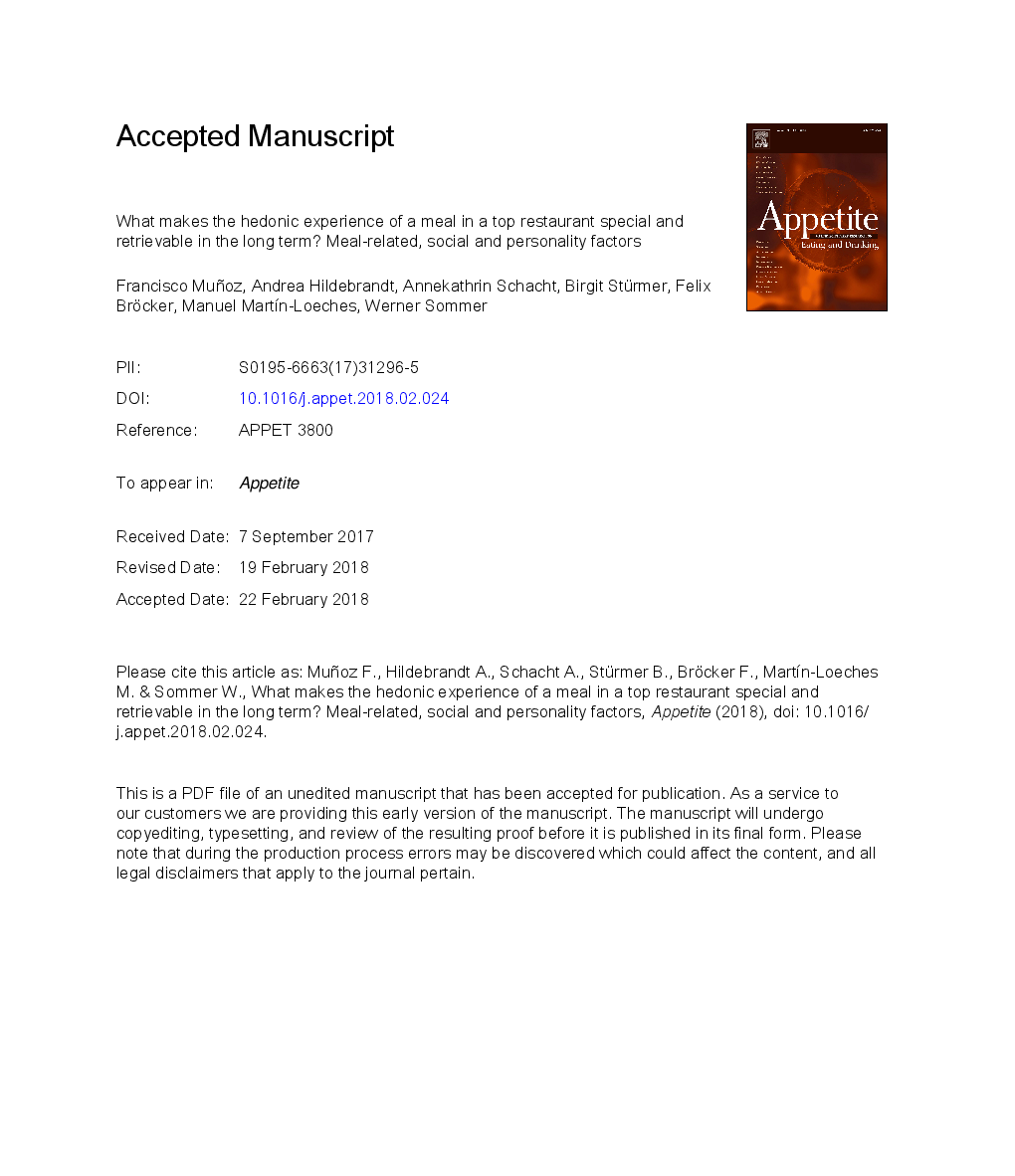ترجمه فارسی عنوان مقاله
چه چیزی باعث می شود که تجربه هودینی یک وعده غذایی در یک رستوران بزرگ مخصوصا در طولانی مدت قابل بازیابی باشد؟ عوامل مرتبط با غذا، اجتماعی و شخصیتی
عنوان انگلیسی
What makes the hedonic experience of a meal in a top restaurant special and retrievable in the long term? Meal-related, social and personality factors
| کد مقاله | سال انتشار | تعداد صفحات مقاله انگلیسی |
|---|---|---|
| 125598 | 2018 | 37 صفحه PDF |
منبع

Publisher : Elsevier - Science Direct (الزویر - ساینس دایرکت)
Journal : Appetite, Volume 125, 1 June 2018, Pages 454-465
ترجمه کلمات کلیدی
آشپزی بالا، ارزیابی هیدونیک، حافظه مضر، تعاملات اجتماعی، تفاوتهای فردی، پروفیل بالا پایان،
کلمات کلیدی انگلیسی
Top gastronomy; Hedonic assessment; Affective memory; Social interactions; Individual differences; Peak-end profiles;

